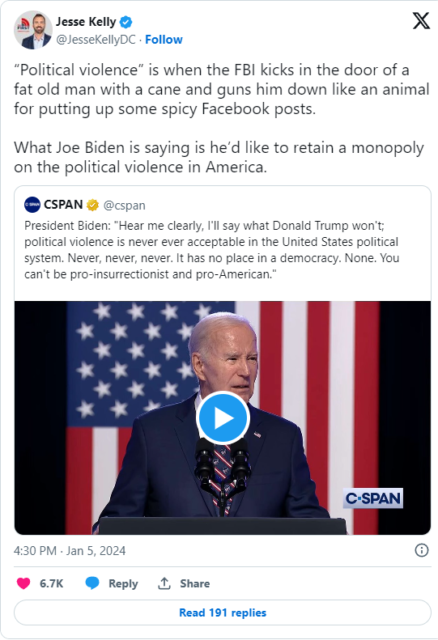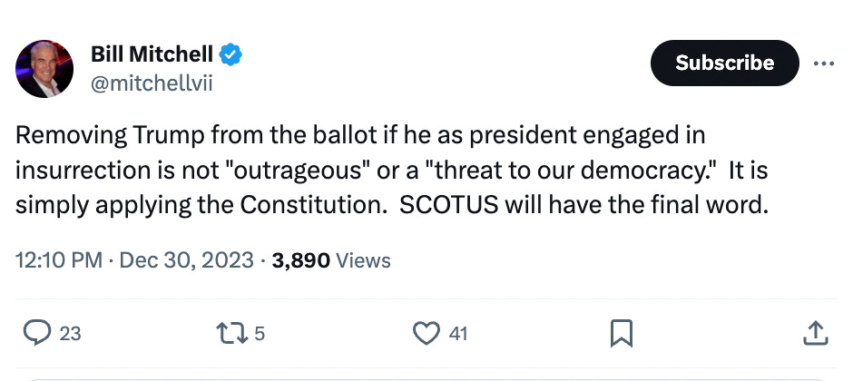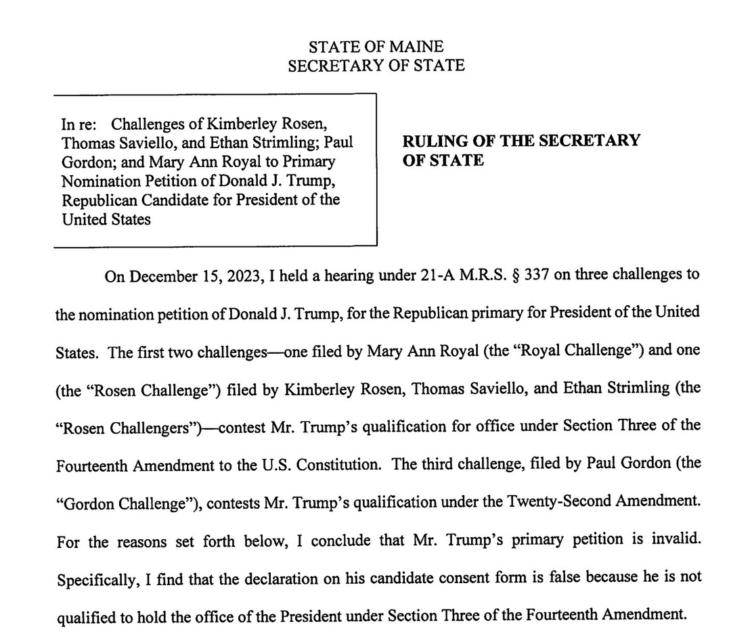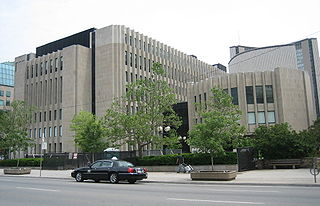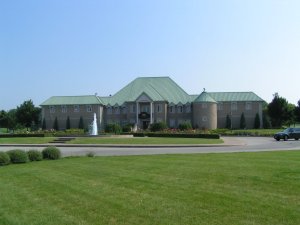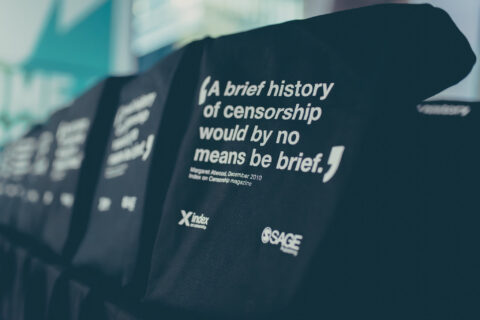Mark Steyn gets the message:
~I’m glad to see I wasn’t the only one who got a mordant laugh out of this line in Joe Biden’s Feast of the Insurrection sermon:
So “political violence is never ever acceptable in the United States political system. Never, never, never. It has no place in a democracy. None.”
An odd thing to say about a “political system” in which Lieutenant Michael Byrd was able to kill Ashli Babbitt in cold blood as his Capitol Police colleagues were able to do likewise to another defenceless woman, Mariam Carey. I would hope to be wrong, but I would be surprised if America gets through this year without more “political violence” — because one side seems to be fomenting it as a pretext for intensifying what Mr Kelly calls their “monopoly” on it.
That monopoly is part of a broader problem in the United States: the abolition of equality before the law. If you can avoid getting dispatched as swiftly as Ms Babbitt, you will nevertheless have what remains of your life ruined by detention without trial, solitary confinement, double-digit years of prison with no possibility of parole … Americans have gotten the message. Do you recall, after the Canadian truckers’ heroic Covid protests inspired the world, there was talk of a similar American Freedom Convoy?
Oh, you don’t remember? Me neither. That’s because it all fizzled out, as its proponents figured that the dirty stinkin’ rotten corrupt US Department of Justice would just treat it as January 6th on wheels.
~Of course, it didn’t work out too great for the Canadian truckers, either: Frozen bank accounts, protracted prosecution … Small potatoes by US DOJ standards, and Lieutenant Byrd wasn’t around to shoot them dead, but it has certainly been fierce and targeted by Canadian standards. Why? Because in Ottawa the “traffic disruption impacted residents’ lives in many ways”.
On the other hand, “pro-Palestinian” groups are currently disrupting traffic in Toronto. For over a week they’ve shut down the Avenue Road bridge over the 401. Why?
Well, it’s a key artery into Toronto’s and Canada’s most Jewish neighbourhood. But, relax: they’re not anti-Jew, they’re just anti-Zionist. After all, many of these Jews in Armour Heights and Bathurst Manor are out every night bombing Gaza daycare centres. It’s part of the same expansive definition of “pro-Palestinian” that has seen International Delicatessen Foods attacked because it has the same acronym as the Israeli Defence Force. But don’t worry, they’re not anti-Semites, just acro-Semites. If I were the famous Japanese tea master Takeno Jōō, I would hire additional security. But fortunately he died in 1555 …
Yet, as I said, it all comes down to equality before the law. The Canadian truckers handed out coffee and doughnuts to locals and are still in the dock two years on. Whereas on the blockaded Avenue Road overpass the Toronto Police deliver coffee and doughnuts to the pro-Hamas lads:
Roll up the Jews to win! In the old days, the German coppers pleaded that they were just obeying orders, but, as Kate MacMillan points out, the Toronto constables are just taking orders. Did you hear the way that fellow put it? “The police are now becoming our little messengers.”

